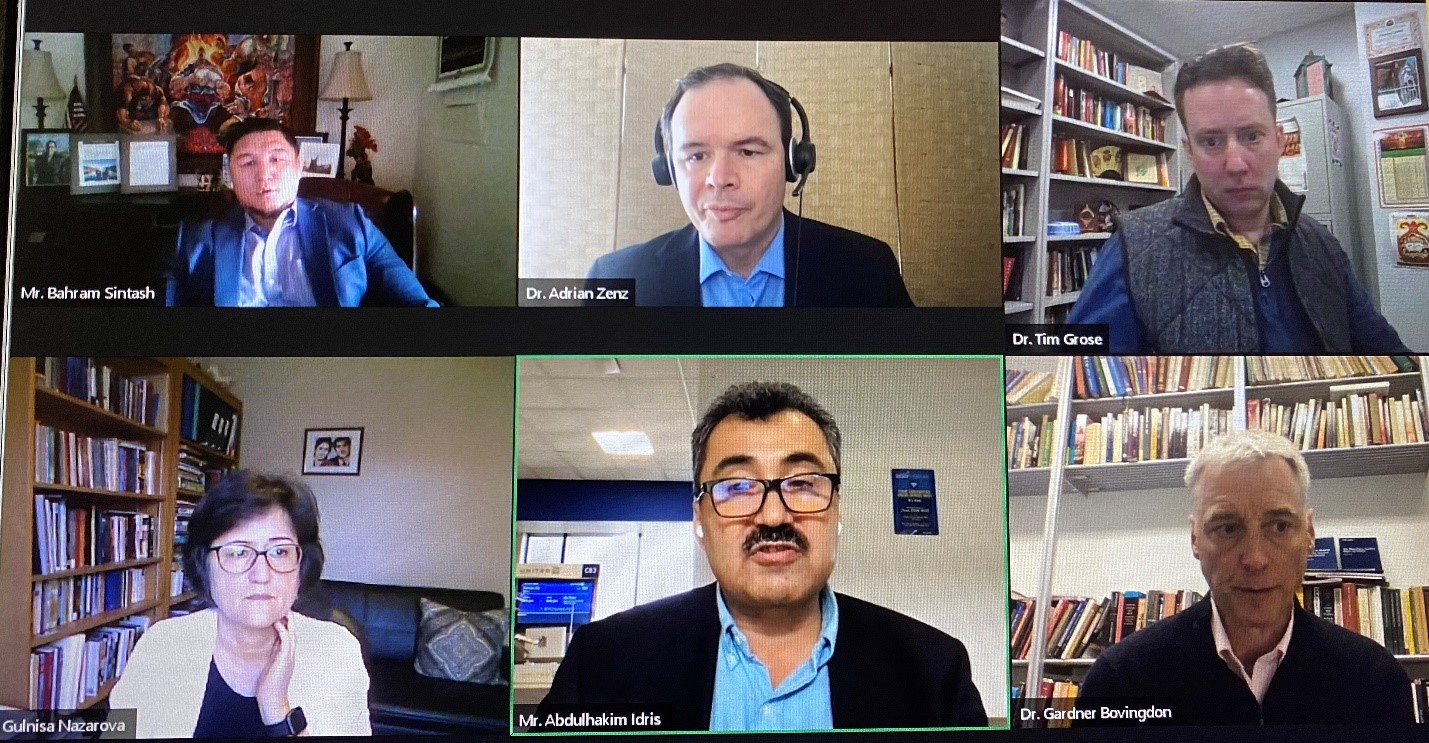On Saturday, October 30th, 2021, several units within the Hamilton-Lugar School of Global and International Studies – the Center for the Study of the Middle East, Central Eurasian Studies, and the Inner Asian & Uralic National Resource Center – hosted a symposium to discuss Uyghur culture, language, and identity. Several world-renowned experts on Uyghur history and East Asian studies convened with ethnic Uyghur members of the Uyghur Academy USA, an organization that aims to “bring Uyghur scholars and intellectuals in various disciplines together.” The topics presented were both diverse in scope and they were imperative for understanding issues of ethno-political relations in Xinjiang. Timothy Grose, Gardner Bovingdon, and Adrian Zenz delivered brief, contextualizing talks as portions of the symposium, and Uyghur Academy members Bahram Sintash and Abdulhakim Idris presented their own insight on issues faced by Uyghurs in their homeland and abroad.
The Xinjiang Uyghur Autonomous Region (XUAR) has become the focal point of international discourse concerning human rights violations and policies of nationalism in modern states. The Uyghurs – a predominantly Muslim Turkic group that comprises one of the People’s Republic of China’s 56 official ethnicities – were affected by heightened periods of tension and rapprochement between the CCP and the Soviet Union throughout the 20th century. Though the region now called “Xinjiang” (“new territory”, in Mandarin) has experienced several instances of official and semi-official autonomy over the last 150 years, issues of erasure and centralization of nationalist policy pose a grave threat to Uyghurs’ safety and right to their own linguistic, sociocultural, and historical heritage.
Dr. Timothy Grose, Associate Professor of China Studies at Rose-Hulman Institute of Technology and a graduate of Central Eurasian Studies at IU, spoke about minority education policy in Xinjiang and its role in erasure of Uyghur language and identity. Mr. Bahram Sintash talked about Chinese Communist Party (CCP) policy in the effects of removing Uyghur script from and tearing down Uyghur mosques that have stood for centuries. Dr. Adrian Zenz, whose contributions to the Uyghur community are highly regarded, presented research on of the CCP’s attempts to control ethnic Uyghur birth rates and undertake demographic engineering. Dr. Gardner Bovingdon, a professor of Central Eurasian studies at IU, applied historical, anthropological, and sociopolitical approaches for explaining CCP “re-education camps” as a part of ethno-political protocol for the CCP. Dr. Abdulhakim Idris, concluding the presentational portion of the symposium, spoke about the difficulties faced by Uyghur populations as well as the effects of CCP actions on neighboring Muslim-majority countries.
The symposium was attended online by scholars, IU staff and students, as well as members of the public from all over the world. The well-attended seminar highlights the importance of creating forums for discussing CCP policies with regard to their minority populations. Symposiums such as this are the product of extensive dedication and coordination between the academic and professional communities of IU and HLS; the Uyghur Academy members were indispensable in their efforts and contributions to the symposium. The IAUNRC hopes to continue contributing to such events in the future.


